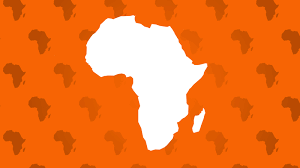“I really hope that one day, YC will recognise the value of what I’m building and back my startup. That will be the game changer.” This is Ayo*, a Lagos-based founder, sharing his hopes of being selected into one of Y Combinator’s cohorts last year. Like many founders, Ayo associates YC’s acceptance with startup success. “The money, the network, the opportunities—nothing beats it,’ he added emphatically.
Ayo’s startup did not make it to YC’s list in the end, but that has done nothing to his faith in the accelerator. He will continue to try until he gets in, he says—a possibility that is now much slimmer, given YC’s recent scale-back from Africa.
Y Combinator (YC), one of the world’s leading startup accelerators, has been a major player in shaping Africa’s tech ecosystem since the middle of the past decade, when tech-powered upstarts began to spring across the continent. The accelerator has backed over a hundred startups, including some of the continent’s success stories such as Flutterwave, Wave, and the Stripe-acquired Paystack. A report from last year, by research firm Briter Bridges, described YC’s portfolio companies as having the propensity to scale, evidenced by the over $1.3 billion follow-on funding raised by YC-backed companies.
In a 2022 report by TechPoint, Michael Seibel, managing director and group partner at Y Combinator, spoke to the accelerator’s presence in Africa: “We continue to be impressed with the talent and ingenuity of African founders. We believe that African startup founders will be a massive part of the continued development of the continent.” But a sharp trend observed in YC’s latest cohorts suggests that the global accelerator may now be looking less at African (and other non-US) startups.
About 50% of the startups YC funded in its 2021 summer batch were based outside the US—a move which, at the time, highlighted the accelerator’s increasing global presence. The W22 batch that followed recorded 24 startups from Africa, marking about 6% of startups in the cohort. After this cohort, the tide noticeably changed, and fewer African startups were accepted into the global accelerator. YC’s S22 batch had just eight African startups, a 63% decline from the previous cohort. Now, the latest W23 cohort welcomed only three startups from Africa, the lowest in recent years.
Reports from industry watchers say the trend is traceable to YC’s refocus on US-focused startups, which comprised over 90% of the latest cohort. Indian startups, which historically trailed US startups in the number of accepted entries, recorded lesser acceptance in this cohort, with only 11 of them representing the region, compared to 33 in the winter batch last year. The trend is replicated across other regions, including Latin America, suggesting that Africa is not alone as it watches YC moonwalk from its heavy lifting across the world. But unlike India and some of these other economies, Africa’s technology ecosystem is just beginning to fledge, and YC’s presence directs much-needed attention to the continent, enabling more funding and growth opportunities.
Implications for the African tech ecosystem
Given YC’s outsized role in the African tech funding market, it’s easy to imagine a gloomy picture for the continent should the global accelerator decide to shelve its pan-African ambitions. Many African startups—such as Healthlane—credit the turning point in their businesses to the accelerator. Healthlane had failed to secure institutional investment after trying for two years, then they got into YC, and a $2.4 million funding followed. So, if YC gets blurry in the African tech picture, what happens to our nascent ecosystem?
Joshua Marima, head of engagement and investor relations at research firm Briter, believes that YC’s scaledown might impact the ability of founders to raise capital, but not in any way absolute as other accelerators and funding instruments are now operational on the continent. “Founders will feel the pinch of YC’s $500k being less available, but there are now several other sources of funding. We are also seeing several other international accelerators stepping up, such as the Techstars brand which recently announced an all-Africa cohort. Local accelerators are also being more deliberate,” he said in a chat with TechCabal.
Marima’s opinions are echoed by a reality in African tech: numerous founders are raising significant capital—$1 million and more—without going through Y Combinator. Local funds worth over $10 million, such as Microtraction Community Limited and LoftyInc Afropreneur Fund 3 are on the table for Africans. This was not the case when YC first began to invest in African startups. The ecosystem is maturing fast on the back of the “Africa rising” narrative, which continues to position the continent as a choice destination for local and global investors.
“There was an obvious funding gap when YC made its first strides on the continent. Nobody was writing big cheques for founders back then. I think YC contributed hugely to closing that gap as the case it today. Of course, we still need YC in the African tech picture, but no founder should ride with the idea that they cannot scale without YC’s ticket,” Oo Nwoye, TechCircle’s founder and longtime Africa tech pundit, said on a call with TechCabal.
This gap Nwoye speaks about is recognised by global accelerator Techstars, whose CEO, Maelle Gavet, predicts that Africa will leapfrog Western Europe this year by producing more tech-powered startups. Bridging this funding gap is a priority for Techstars, demonstrated by their decision to set up shop in Lagos, Nigeria. The ARM Labs Lagos Techstars Accelerator’s head, Oyin Solebo, spoke to TechCabal for this piece. “I can’t comment on YC, but what I can tell you is that we [Techstars] continue to believe in the strength and potential of African entrepreneurs. This belief is supported by the result of our recent State of Innovation Research report, which demonstrates an increasing belief in innovation coming from Africa…and the importance of accelerators for the African ecosystem,” she said.
The way forward
There are arguments that it is probably too early to confirm YC’s scaledown in Africa—especially as their reduced footprint is at a global level (only in the US did they up their game). The perceived retreat can be attributed to several factors, including the prevalent macroeconomic headwinds and a general drop in investor appetite. There’s also the possibility that YC is cautious about punching above its weight in less stable markets outside the US, its home country and, perhaps, most understood market. Whatever the case is, it remains clear that accelerators are critical to building Africa’s technology ecosystem. Local stakeholders such as Flat6Labs and CcHub are doing the work around building high-value accelerator programmes. This should continue as startups multiply across the continent, bolstered by the successes of precedents.





















